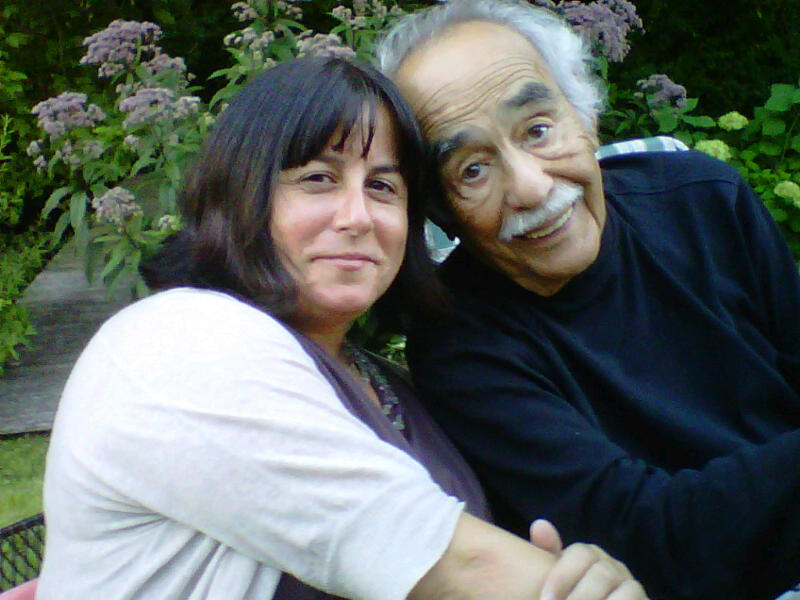
Ten years ago, I met a man who was to become one of my dearest friends. Pedro Guerrero was 85; I was 32. Neither one of us was in the market for a new pal. I was a magazine editor in Phoenix, writing about Usonia, the Frank Lloyd Wright-style community in New York. A mix-up about photography for the story led me to search for existing artwork, which led me to Pedro, who had traveled to the site with Wright in 1949 and had a cache of photographs.
Pedro was Wright's photographer for 20 years and, as luck would have it, lived about an hour's drive from me in Florence, Arizona, the small town he moved to in 1999 after six decades in the East. I spent a morning interviewing Pedro, and he told tale after tale of his years documenting the work of Louise Nevelson, Alexander Calder and "Mr. Wright"; his childhood in Arizona as a boy of Mexican descent; his service in Italy during World War II; the night in 1962 when Julia Child cooked him dinner at her home in Cambridge after he photographed her kitchen; and how he was branded the "New Canaan Dove" during Vietnam when he openly opposed the war while serving on the town draft board. His views resulted in his being blackballed by some of the top magazines he contributed to for a living. I could have listened to him for hours, which is probably why he liked me, but he had lived through so much of the 20th century and hearing about it was irresistible.
I wrote my story, a friendship ensued and for the next few years one of my favorite pastimes became road trips to Florence where Pedro and I, often joined by Dixie, his companion and later wife, drank martinis on the porch, shot the breeze for hours, and dined on tamales and pinto beans with cheese.
One Saturday, Pedro invited me on a trip to see some of his childhood stomping grounds, including the small town of Globe. We called the adventure our "Globe Trot," and when we arrived back at his house later that afternoon we retired to the porch and drank coffee. I remember thinking this was one of my life's greatest pleasures -- being with a good friend with nothing to do and nowhere to be -- and for the next hour or two we sat and talked as the sun lowered in the sky, bringing to a close a perfect day in the desert.
Pedro often reminisced about what he called the great luck of his life; how he wound up working for Wright and his career took off and he was along for the ride for as long and as far as it would go. But on this particular day he talked about some of the sadder aspects, too. I listened as he spoke of regrets and heartbreaks and, for what seemed like the first time, I understood that perhaps the hardest thing to do in life is forgive ourselves for our mistakes. Right there on the porch I felt some of my own laments transform into something like faith, and in just a few short hours Pedro had gone from being a wondrous and entertaining pal to a profound and treasured friend.
Over the years Pedro spent much of our time together looking back, thinking and talking about his past, which I imagine one is wont to do when he has lived so long and is often the oldest person in the room. Still, he did much in the present, too. Well into his nineties, he and Dixie traveled a great deal. He wrote his memoirs, some articles and, as he had for decades, letters to the editor. One of his last missives, to the local Florence paper, was in response to a proposed mining project in town. Pedro wrote, in his inimitable way, "We're already ugly enough." A proud, lifelong liberal, he was so angered by the far right that he founded the farcical "Cocktail Party," drawing martini glasses on baseball caps and sending them to friends -- he even started a Facebook page, citing the party motto, "Friends don't let friends drink tea!" He made mobiles from rusted metal and showed them in Florence, calling the exhibition "Rust in Peace." The one he made for me hangs in my apartment in New York City, three blocks from where he had a studio in the 1950s. Whenever I look at my mobile, which bears his name in metal script, I think, How in the world did we ever become friends?
Pedro died last month at his home in Florence. I am still stunned by how blindsided I feel by the death of a 95-year-old, but he was more youthful, cheerful and interesting than anyone I ever knew. But when I think of Pedro, as I often do, I am not too sad. I am only grateful for my good luck -- or is it faith? -- in being his friend.

